Centralized Catalog, Faster Publishing: 40ParkLane’s Marketplace Success with CedCommerce
Reading Time: 4 minutesAbout the Brand: 40ParkLane LLC Studio40ParkLane is a design-led print-on-demand brand created…
As we all are aware of the term “PPC Advertising”, it is defined as a model of internet marketing! A digital marketing strategy that happens to be a whole bag of tricks, to get successful in the marketing campaigns of your business. Marketing through PPC proves to be a trick of the trade, a fast-track solution for any business to gain effective and efficient branding.
Advertising through PPC, lets you promote your brand on a wider platform, providing promising marketing techniques, which, when tailored, often reaps results. PPC advertising platform is a pay per click advertising method that is attributed to an auction that is triggered immediately when the search query is made by the user. It runs prominently on campaigns such as the search, the shopping, the display campaigns and on. Therefore the targeting also keeps varying.
A PPC beginner’s guide deals with the very basics of your digital marketing strategy or as a part of the PPC Strategy(to be very specific), where it all depends upon the search intent of the user. The bidding takes place with precise keyword targeting, favoring the advertisements, ranking on those particular keywords. Going shoulder to shoulder with organic search marketing, Pay per click advertising helps you drive traffic, increase revenue, boost brand recognition, also this form of marketing is the foundation pillar for increasing sales. The best part happens to be the instantaneous nature of the results, as compared to other forms of marketing.
PPC beginner’s guide is the part and parcel of the digital marketing wing. PPC advertising is an auction-based advertising format in which advertisers run for certainty, by bidding through precise keyword targeting methods. It is for sure that the advertisers fix a budget to be spent on ad campaigns. All in all, to be the best with your PPC Advertising strategy, your intent should meet your decisions… Well on second thoughts…
Perhaps, targeting through bidding proves successful in advertising through PPC. However, it is to be ensured that the budget allocated for this purpose does not go as waste and advertisers do not end up missing the boat. The budget exhaustion happens to be fixed for a particular period, and the advertiser ensures that the same is spent on result-oriented resources. Including the right keyword targeting, the right audience targeting, the right geographical location, and the demographics targeting, etc., are some parameters to be focused on art the very first. Encapsulating the potential prospects with a specific intent for being proficient customers in the future, is the key.
Therefore thorough planning and proper analysis along with perfect execution are required at the grass-root level for your business to scale in the digital landscape. A PPC beginner’s guide focuses on the certainty in goals such as brand awareness, nurturing leads, increasing sales, or building brand establishment for trust and credibility through advertising. Here, it is to be made sure that a perfectly optimized and intent-centric PPC campaign has to be run. To make a go of in the business through a blend of ideal advertising, the ad campaign should be sequentially segmented according to the campaign’s goals (set at the campaign, ad group, product, category or the keyword level). A thorough PPC Strategy should be practiced for a refined and goal-oriented ad campaign!
A PPC guide for beginners sets up paid search advertising as an internet marketing model that has to be created with time but followed up with an adequate execution. A refined, targeted and goal-focused ad campaign running is the one that involves proper planning, continues with proper execution, and ends up a proper optimization (refining and adapting to the changes).
Below here are the essentials to build a successful PPC Strategy as a core of the PPC guide for beginners. Let’s see how this is done in phases.
The main focus of the goal set up for your PPC campaign is a conversion after all. You say, for instance, you have developed a strategy for your PPC campaign but still not generating profit and driving conversions, then the cake isn’t worth the candle. Also, the goal segmentation for the awareness, consideration and conversion stage might not have been in accordance with the buyer persona, thereby never aligning with the buyer journey!
ProTip:
To take into consideration the average CPC based budget, look for the right match of keywords with their CPC and the clicks per day to define the right budget for your campaigns.
As the core of the internet marketing model, in order to set up your PPC campaign goals, you need to find out the type of goal, through the campaign. Goals can vary from bringing in traffic to just getting the clicks, to driving increased revenue, to sales and conversion. Whatever the goal is for your PPC advertising campaigns, it should be in alignment with the overall digital marketing strategy.
Overall digital marketing strategy?? What does that mean?
A PPC guide for beginners says that the PPC campaigns should be well versed and resonating with the other aspects including organic search marketing, social media marketing, content marketing campaigns, and so on. The paid advertising strategy has to be supported or backed up with the other pillars of the marketing and promotional strategies. Building with PPC could be the pillar to higher brand visibility.
The emphasis of setting up a successful PPC advertising campaign is to drive conversions from a channel other than organic searches and various referral sources. However, it should be kept in mind that the PPC advertising strategies aren’t poles apart from the goals already set for your business. As the pay-per-click campaigns are bidding based on targeted keywords, the number of organic searches on those targeted keywords should also be taken into consideration.
A PPC strategy for beginners asks you to check your organic share of voice for keywords to determine the preferential keywords to be included in your paid search budget. Determine how many shares of voice you already capture from SEO efforts, and who is capturing the paid traffic here. It is one of the best practices of your paid advertising strategy.
A careful selection is what is needed when you have to compare the same keyword for organic searches and subsequently adding it to your priority list of targeted keywords through the paid campaigns. `Here, the Key performance indicators play a vital role when it comes to building a PPC strategy. Your KPIs might include the numbers of sales and marketing qualified conversions.
It is high time you start thinking to prepare your budget based on the bidding with precise keyword targeting for a perfectly crowned PPC marketing strategy!
ProTip:
For a precise targeting of the keyword to minimize the unnecessary budget exhaustion, Keyword Planner serves the purpose!
Not to forget that the keyword targeting should be followed by some core parameters such as networks, location, demographic, geo-demographic, geo-location, and audience targeting. The number of clicks you can expect as a certainty from those per month may define a prospect’s approach for your ads, and the advocacy of their conversion value may be.
The number of clicks though depends on multiple factors, that include the quality of your ad copy, the relevance and the presentation of your landing page as it relates to the search query, the fierce nature of competitor bidding, and the percentage of people who click paid ads. From the top to the bottom, a solid ppc strategy for beginners is the key to planning, executing, and optimizing paid ad campaigns.
PPC marketing strategy as a part of your digital marketing strategy shows how keyword research has always been the jack of all trades! Whether the organic search ranking, the advertising, and the marketing activities referred, targeting for the wrong set of keywords has never been the key. It is just that with the paid advertising, the scenario for keyword-based targeting is approached differently.
Additionally, the searches made by the users are the bunch of those rich keywords that the advertisers want to bid on for maximum growth. The broad match, the phase or the exact match, all have different intentions with the former being close to the generic nature of search queries, and the latter brings in much of preciseness in the searches, thus refining the intention.
ProTip:
Always remember that while targeting the keywords, the Paid Difficulty along with the search volume, should be given greater preference. This refines the searches bringing in the opportunity to rank easily. Given the fact that the search volume is sufficient and the paid difficulty quite less!
PPC advertising campaigns are set up on an auction basis with keyword targeting as their main focus. Thus it signifies the PPC-based advertising is user-centric. When the search query is typed, the auction begins, the advertisement with the best results flashes on the searches for the targeted keyword.
So in order to be nearly perfect with your keyword targeting, diversified keyword research takes place to filter out the list of those keywords that best fit the range of both exact match and the phrase match. Keyword targeting has to be decisive; therefore, already having done a substantial portion of the competitor keywords study should be carried in advance. That’s a good start for your paid advertising strategy!
Scale your brand visibility with Paid Search Advertising…If your site dwells in with SEO, or the search function as an asset, export all the searches from the past few days, and then categorize them by type and order. Being at the very core of the internet marketing model, it’s worth taking note of these searches in the paid campaigns, in order to create the content that could suffice the search intent. At last, access your site’s Google Search Console, and identify existing organic keywords with a high click-through rate (CTR).
Analyzing your competitor has been one of the foundation pillars for setting up your PPC ad campaigns. Knowing the competitor tells you, the aggressive approach your competitors are having with reference to targeting the audience that you also eye on. For more precision use Alexa’s Audience Overlap tool, SEMrush, Ahrefs, Moz Pro, etc., to identify sites competing for your audience. Analyzing the various matrices when you have to come on level terms with your competitor is by far the best strategy for setting up your campaign. The A/B testing method for comparing the ad copies to bring out the best in them to be worked with. This ensures that when you are on the battlefield with competitors, you serve the best intended and dynamically targeting ads.
Say for instance; Google Ads also has specific features to help you outrank competitors, fetching the information based on real-time data. For example, if you use the Target outranking share feature, Google Ads automatically(a portfolio bid strategy) that ups your bids to help you surpass a competitor for the top spot.
ProTip:
Auction Insights pack a punch! With a thorough analysis of your competitors, it’s very necessary to compare our performance with the other advertisers taking part in the same auction. This helps you organize your budgeting and the bidding strategies. Here, the auction insights have a role play!
It is by now that you have decided your budget, and you are ready to set up your account. For setting up the Google account, you need to define the ad campaigns and ad groups. For that, the budget set is for the campaign level, and the keywords will be determined for the ad group level.
As the ad campaigns are created with the aim of making the user click, the search terms will play a vital role here. Analyzing those search terms that are collected over time is the next big step, understanding the course of action you want users to take when they click to your site from those terms.
For further segmentation, the ad groups will be created, based on the keywords research. The keywords that will fit well in a particular ad campaign are segmented. Therefore keywords set at the ad group level represent the search intent for that particular ad group.
Within the ad groups are a group of ad texts! Now creating an effective ad copy acts as the building block for improving the overall quality score, increasing the click-through rate, and boost revenue. Here the quality of the ad that you create will determine the user’s approach as a part of a user-centric PPC marketing strategy. Get yourself known of the search engine’s basic policies, to avoid a breach of the security measures while considering your ad text; ads that flout these rules may be removed.
ProTip:
It’s great to know that Responsive Search Ads are your choice to be made! To help you reach a potential set of customers, the Responsive Search Ads are flexible enough to give you more room to share your message! With multiple headlines and descriptions, the relevancy with the best combination for the ad copy is maintained. This ultimately lets you compete in more auctions, thereby getting in more queries!
For creating an effective ad copy, the following practices need to be enacted:
ProTip:
The Dynamic Keyword Insertion plays it part here! The use of Dynamic Keyword Insertion, dynamically updates the ad to be in terms with the user’s search query in real-time! You are able to show a more relevant ad to the users. Therefore DKI customizes the ad based on the exact search query.
Also, for a beneficial paid advertising strategy, you always want to make your ad copy the best one(use Ad Extensions)!
The ad copies should take you to specifically designed landing pages, that look promising enough to ensure better conversion. It should be kept in mind that the content on the landing page should be in alignment with the ad copy and search intent indeed. The more they connect with the landing page, the closer you are to the goal accomplishment.
There is however a practice by convention that the ads usually take the user to a landing page that is the homepage of the website. This is fussy and irritates the user, thus the bounce rate increases.
It is a fact that optimizing the landing page to bring it in alignment with the ad copy can result in an increase in conversions exponentially. Keep in mind that each landing page should have just one CTA, and it should be illustrative, i.e. the action word in the CTA should be crystal clear.
The design of the landing page should be simple and user-friendly. The elements that are responsible for slowing down the page speed should be eliminated. The forms that are to be filled that are present on the page should have limitations in their mandatory fields. Your sole objective at this point is to get the visitor to fulfilling the goal of your campaign, so steer clear of anything that could distract them from doing so.
During the optimization phase, it’s very necessary you implement steps that lead to maximizing conversions. This is where your knowns can play the role of the buyers or your customers. An already visited prospect is much easier to target than to search for a new one. This concept is brought to life by the Remarketing Ads.
Remarketing Ads are the way to connect with a previously interacted audience on your website. To strategically position your ads in front of already familiar audiences lets them reconsider your solution to solve their problems. These remarketing audiences are found to interact with your website for the awareness stage and may later on convert for the same.
The basis of the functionality of the Remarketing Ads is well known from the fact that these ads culminate a sense of brand awareness to the already existing audiences. Ultimately to serve the purpose of likable conversions (Expertise, authoritativeness, and trustworthiness), in the later stages, to develop brand loyalty.
ProTip:
Under the Analytics, you can define a set of audiences that have fulfilled your required goal or the actions taken throughout the funnel. Later importing the same audience to your Adwords account and Remarket them.
This is where ads keep on ranking for a set of keywords showing a great irrelevance with the audience’s search intent and the budget getting exhausted thereby. The omission of these types of keywords is the only option left. The negative keywords are those who have a strong impression but a comparatively lower CTR. This set of keywords should be tagged separately, to restrain your ads from appearing for the same.
By cutting down the cost of negative keywords, the focus on the budget for bidding is increased automatically. Thus with high performing keywords, the CTR will increase, thereby improving the overall score. The ad campaigns should also be restricted from a broad match of keywords. The broad match represents a set of keywords that are to be refrained from so as not to feature your ad for irrelevant searches leading to unnecessary budget exhaustion. This would mean that again, the ad would keep appearing for almost every keyword, which needs to be stopped.
For a paid search campaign, the return on investment could be said to be the replacement for cost per click or the cost per conversion. Now here, increasing the return on investment is getting more profit with reduced budget allocation for the bidding procedure. For this, the optimization of the ad copy is carried out. Optimization of your ad copies for particular campaigns serves you a worthwhile venture with the paid advertising strategy.
Additionally, from the viewpoint of an overall PPC marketing strategy, this is a better way of increasing the ROI, as by terminating the low-performance keyword and reallocating the budget for better focusing on targeted keywords. In the long run, the aspects that are to be focused on for increasing ROI is the Quality Score, the improvement in the appearance of the landing page, writing more compelling ad text or writing ads that more closely match the intent of the user.
ProTip:
It’s solely dependent on the results you get as per the device, you may judge the comparison between these devices using the various metrics like the conversion rate, no. of conversions, etc… to determine the best performing device for yourself to select one for adjusting your bids.
A goal-oriented marketing strategy serves you a profitable deal only when its performance is tracked, monitored and altered at calculated intervals of time. Therefore the goal of your PPC campaigns is established only when you have a proper strategy. A thorough report based on the ad performance should be maintained, so as not to drop the ball and continue running colossal PPC advertising. Specifically mentioning the metrics such as CTR, Avg CPC, ROAS(conversion value /cost), etc. The following points should be illustrated from the report:
To note:
As part and parcel of your paid advertising strategy, taking into consideration The Quality Score, the Ad Rank, the landing page relevance, the ad quality, the expected CTR, the CPC, etc., reveal the transparency of the PPC Advertising formats. These are the factors taken into consideration that may define the performance of an ongoing campaign majorly. A close look on the KPIs means that the Advertisers may term it as their report card, to keep customizing the ad attributes to improve the performance furthermore.
Remember that in the digital marketing ecosystem, the PPC Campaign for any advertiser thrives on fruitful results, when they are running the campaign with a calculated approach under the paid search strategy. Don’t just throw away your budget getting carried away with the excitement for your bidding; plan your venture for the perfect pay per click marketing. Set the campaign objectives and goals beforehand, search for the target market, understand your buyer persona, analyze what your competitors are doing, this would refine the bidding strategy set up for a particular campaign…
As a part of your overall marketing strategy, focus on execution and optimization activities for achieving greater returns on the ads spent. But, working with your paid strategy does not imply that you focus less on the other inbound marketing activities and the organic presence. Working on set patterns on different platforms, you can target for higher audience boosting sales and thereby shooting the revenue up.

Reading Time: 4 minutesAbout the Brand: 40ParkLane LLC Studio40ParkLane is a design-led print-on-demand brand created…
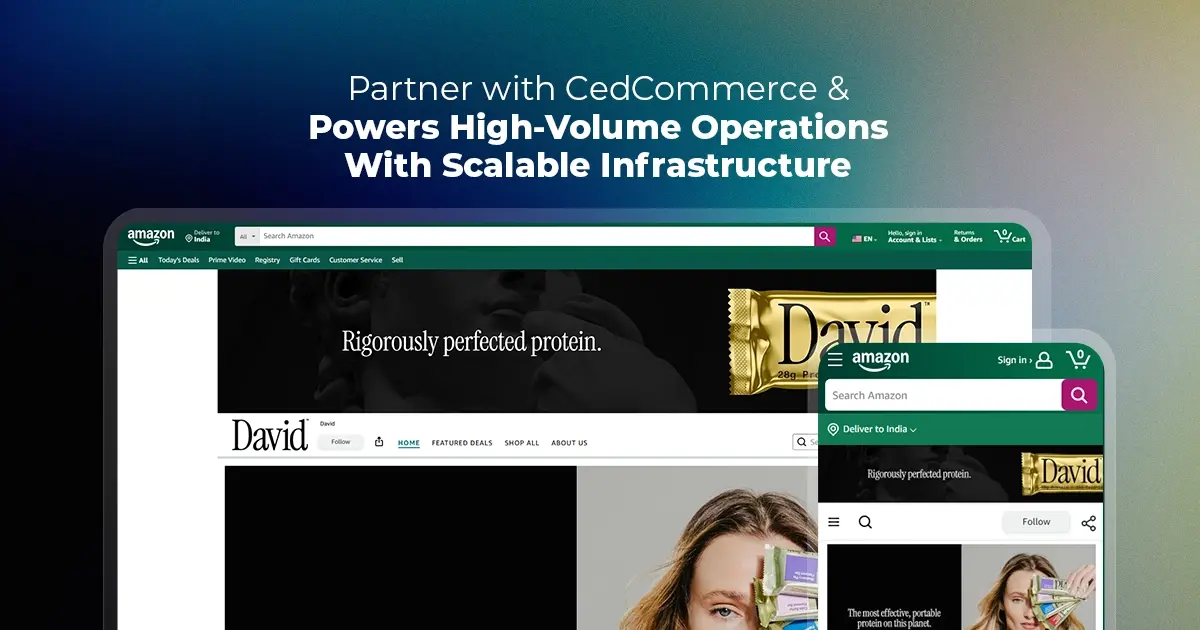
Reading Time: 3 minutesAbout the Company Brand Name: David Protein Industry: Health & Nutrition (Protein…
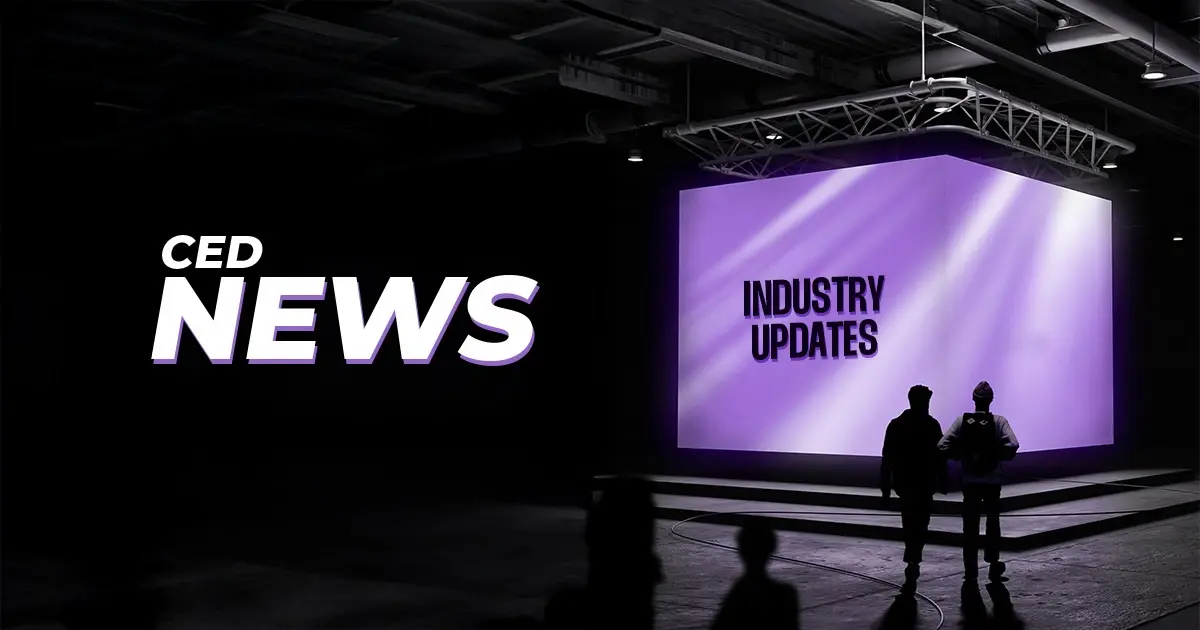
Reading Time: 3 minutesOnline retail spending in Germany is entering a renewed growth phase after…

Reading Time: 4 minutesTikTok Shop has released a comprehensive Beauty and Personal Care Products Policy,…

Reading Time: 4 minutesTikTok Shop has formally outlined comprehensive requirements for expiration date labeling and…

Reading Time: 3 minutesTikTok Shop is raising its sales commission for merchants across five active…

Reading Time: 11 minutesBy now you have seen your BFCM 2025 numbers. The harder question…

Reading Time: 3 minutesAbout the Brand Name: Vanity Slabs Inc Industry: Trading Slabs- Vanity Slabs…
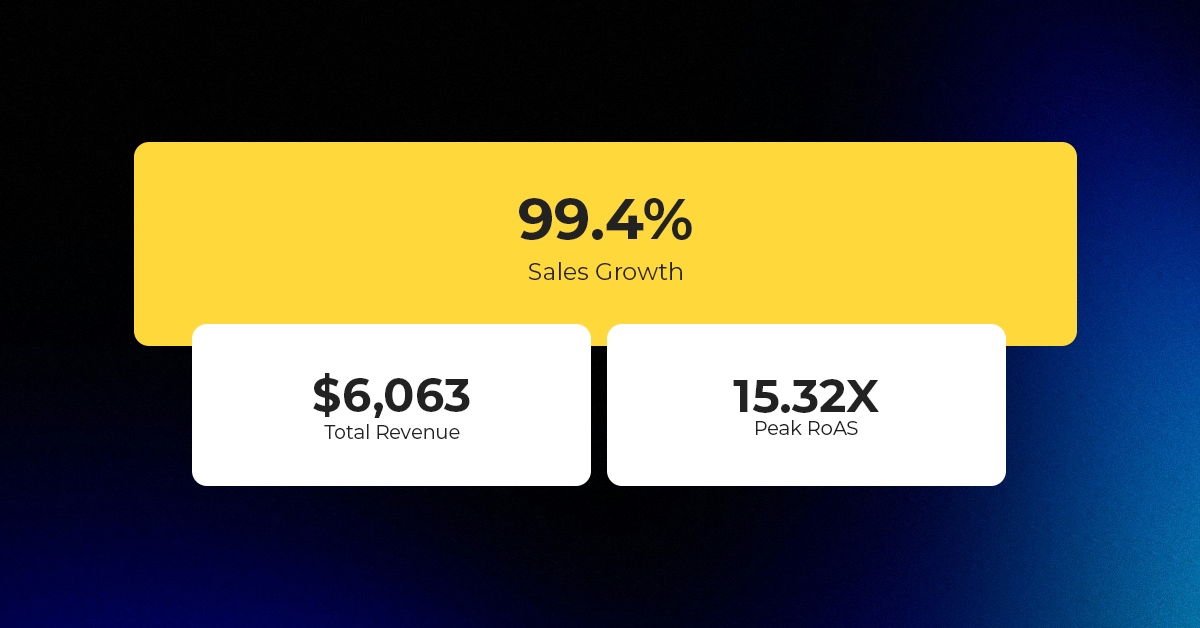
Reading Time: 2 minutesAbout the Brand Name: Ramjet.com Industry: Automotive Parts & Accessories Location: United…
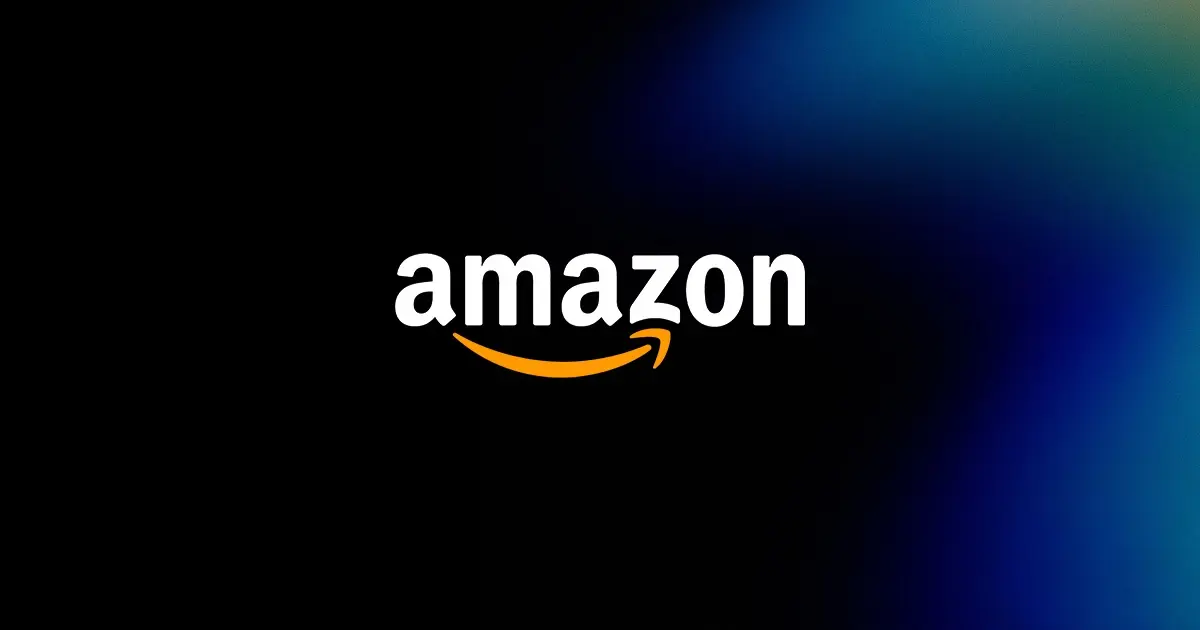
Reading Time: 2 minutesAmazon is rolling out strategic referral fee reductions across five major European…
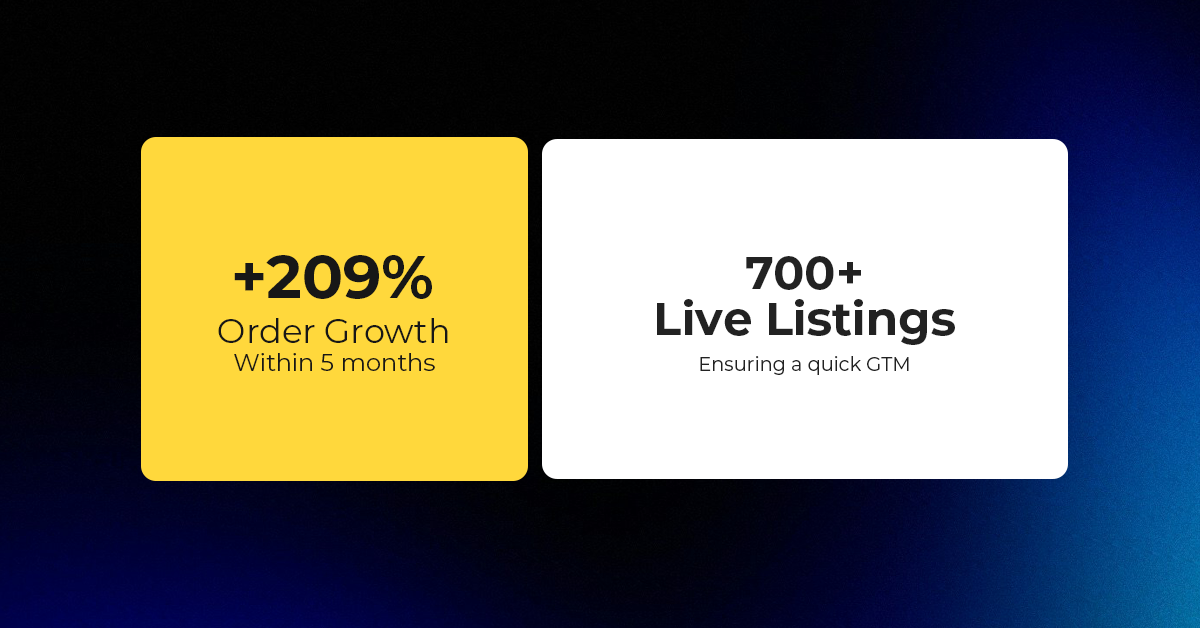
Reading Time: 4 minutesQuick Summary: Scaling Lifestyle Powersports on eBay with CedCommerce Challenge: Zero marketplace…

Reading Time: 4 minutesTikTok has surpassed 460 million users across Southeast Asia, reinforcing its position…

Reading Time: 3 minuteseBay has released its final seller news update for 2025, with a…

Reading Time: 3 minutesAmazon has clarified its stance regarding speculation around a potential breakup between…
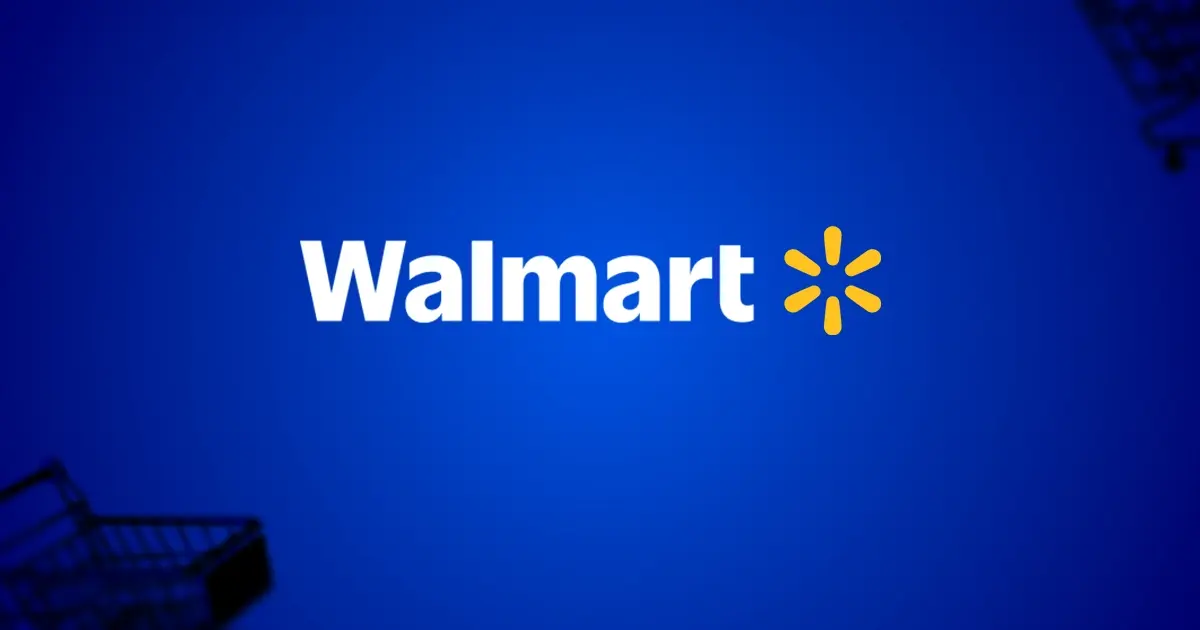
Reading Time: 4 minutesWalmart is accelerating its push into next-generation fulfillment by expanding its drone…

Reading Time: 4 minutesFaire, the fast-growing wholesale marketplace connecting independent retailers with emerging brands, has…

Reading Time: 4 minutesB2B buying in the United States is undergoing a fundamental behavioral shift…
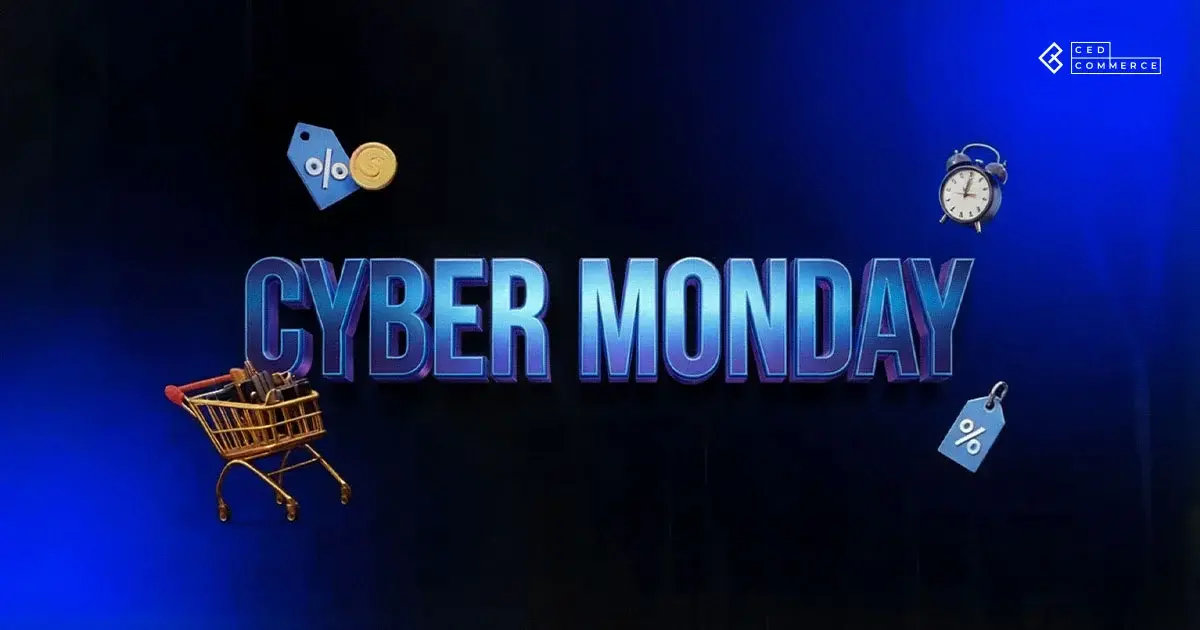
Reading Time: 3 minutesSummary Cyber Monday 2025 has officially become the largest online shopping day…

Reading Time: 2 minutesSummary Amazon kicked off December with two major developments shaping the future…

Reading Time: 2 minutesSummary Walmart has entered December with two major moves that signal a…
The blog and the post are absolutely fantastic! A lot of information is helpful in some or the other way. Keep updating the blog, looking forward to more content …Great job, keep it up.
Nice blog. Thank you for your valuable information.
Hey Siya,
Thankyou and really overwhelmed that you took time out of your busy schedule to read.
Rest assured that CedCommerce would keep showing up informative pieces such as this.
Thankyou once again, highly appreciable!
Have a nice day!
Leave a Reply